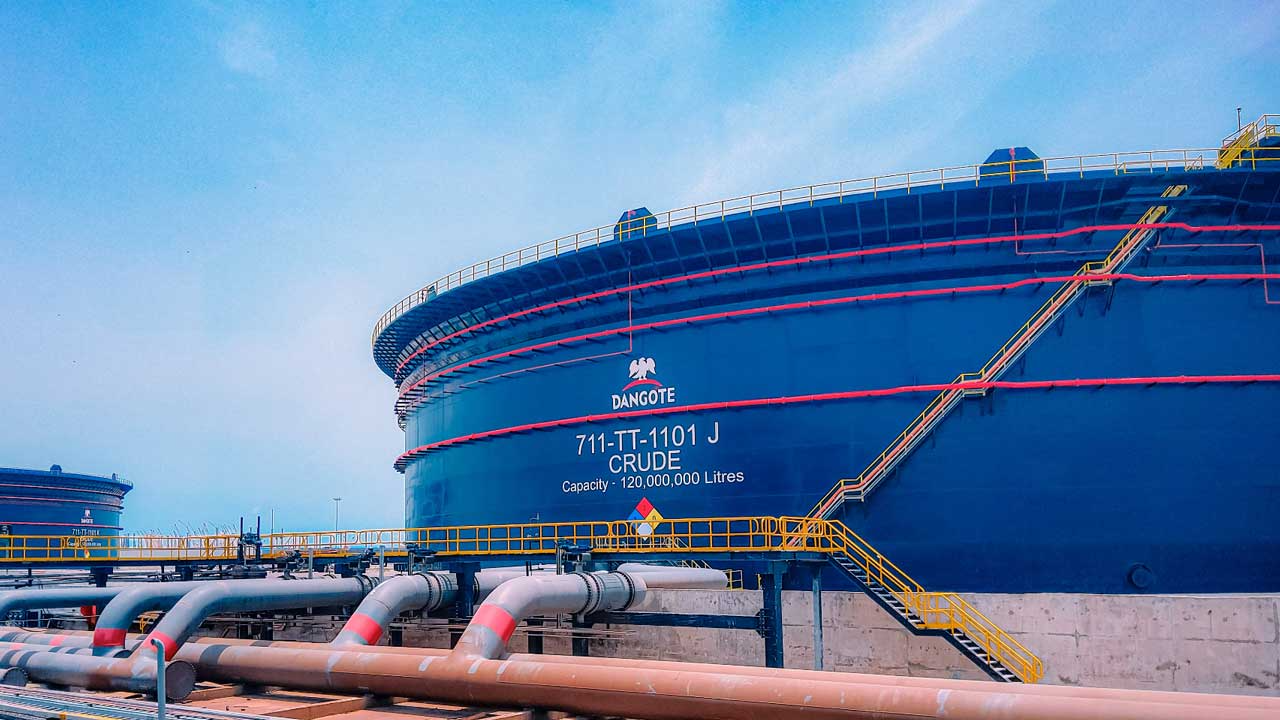Huhuonline.com can authoritatively report that Africa’s largest refinery, owned by Aliko Dangote, is preparing to import Russian crude oil as a last resort after repeated failures to secure feedstock from local oil producers, a development that threatens to entangle Nigeria in the geopolitical crossfire over Western sanctions on Moscow’s energy exports. The $20 billion Dangote Refinery, which aims to transform Nigeria from an importer to a net exporter of refined petroleum products, has faced months of supply shortfalls as international oil companies operating in Nigeria refuse to prioritize domestic sales. Instead, they continue exporting Nigerian crude to more lucrative markets abroad.
Frustrated by what he calls an existential threat to his refinery’s operations, Dangote has turned to the courts; filing lawsuits against the Nigerian Upstream Petroleum Regulatory Commission (NUPRC), seeking regulatory enforcement to compel oil majors to sell their crude domestically before exporting.
“If Nigerian oil is not available to Nigeria’s largest refinery, then where does that leave our energy security?” a Dangote Group executive rhetorically asked Huhuonline.com on condition of anonymity.
With little relief in sight, sources told Huhuonline.com that Dangote has begun exploring alternative crude sources, including discounted Russian shipments struggling to find buyers due to US and European Union sanctions. According to Africa Intelligence, Russian trader Theia Trading, a Dubai-based subsidiary of sanctioned Demex DMCC, has been unable to sell its fuel cargoes. One tanker, the Ocean Jupiter, was recently denied entry into Senegal and Togo and is now targeting Ghana. Industry sources who elected anonymity because of the sensitive nature of the issue, told Huhuonline.com that Dangote refinery, desperate for crude inputs, may become a surprising new customer.
The move comes as US President Donald Trump threatens to impose 100% tariffs and secondary sanctions on countries buying Russian crude, warning that “any nation funding Moscow’s war machine will face consequences.” Such threats have already rattled India, once a top Russian oil buyer, which has begun scaling back purchases in favor of Nigerian and US crude. Should Dangote refinery move ahead with Russian imports, it risks straining relations with Washington and undermining Nigeria’s reputation as a reliable Western partner.
Nigeria’s crude trade has already shifted dramatically in 2025. The country has ramped up imports of US crude, which offers higher yields and more stable supply than local blends, according to Reuters. But with refining capacity at Dangote’s plant ramping up, domestic shortages have grown acute, leaving the billionaire no choice but to seek controversial alternatives. Dangote has also warned that the flood of discounted Russian petroleum products into African markets poses a direct threat to Africa’s emerging refining sector, undercutting local producers with artificially cheap supply.
A Refinery in the Crosshairs
For now, Dangote’s refinery, touted as a game-changer for Africa’s energy independence, is caught between competing forces: oil majors reluctant to divert Nigerian crude from global markets; a weak regulatory environment unable or unwilling to enforce supply obligations, and geopolitical risks, with Russian oil offering short-term relief but long-term exposure to Western backlash.
Russia’s so-called ghost fleet – also referred to as the shadow fleet- consists of hundreds of aging oil tankers registered under flags of convenience, often owned through obscure shell companies. These vessels transport sanctioned Russian oil by evading monitoring systems and sanctions enforcement. The ghost fleet accounts for around 70% of Russia’s seaborne oil exports and nearly 90% of crude shipments, as noted by French daily, Le Monde. Western nations, responding with escalating sanctions and insurance regulations, have sought to restrict these vessels’ operations.
Energy analysts say the Dangote refinery’s predicament highlights both Nigeria’s chronic governance failures and the growing fragmentation of global oil markets. “This isn’t just about Dangote,” said one industry expert. “It’s about Nigeria deciding whether it will stand with the Western order; or carve its own path by embracing sanctioned crude.” NUPRC has yet to comment on Dangote’s latest lawsuit, but US officials are reportedly monitoring the situation closely, according to diplomatic sources in Abuja.





